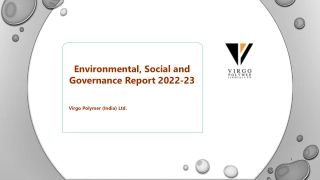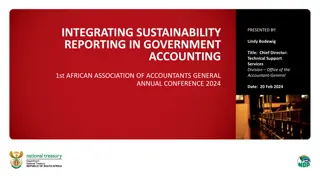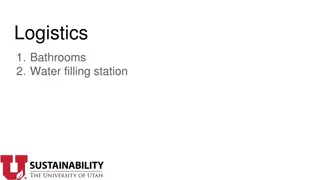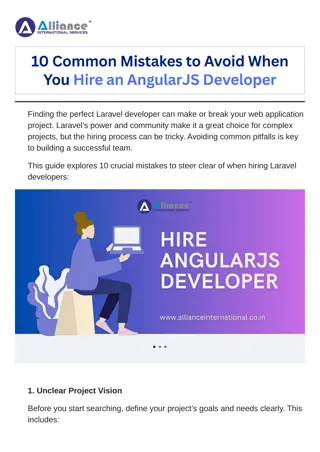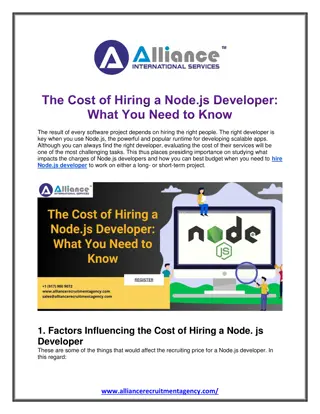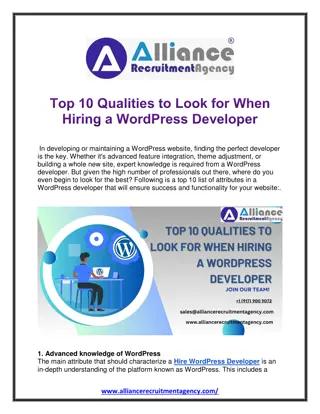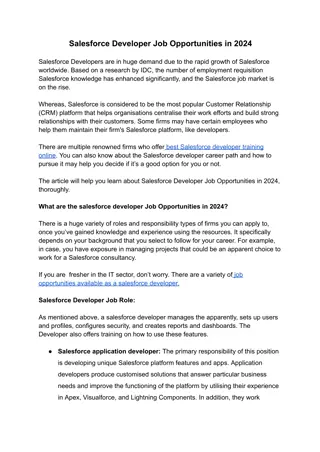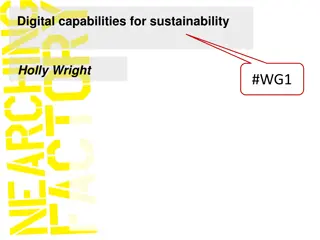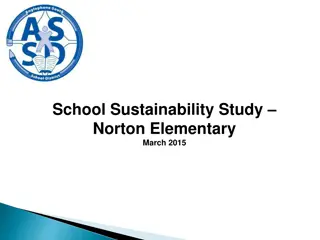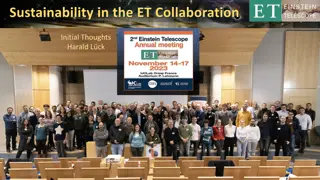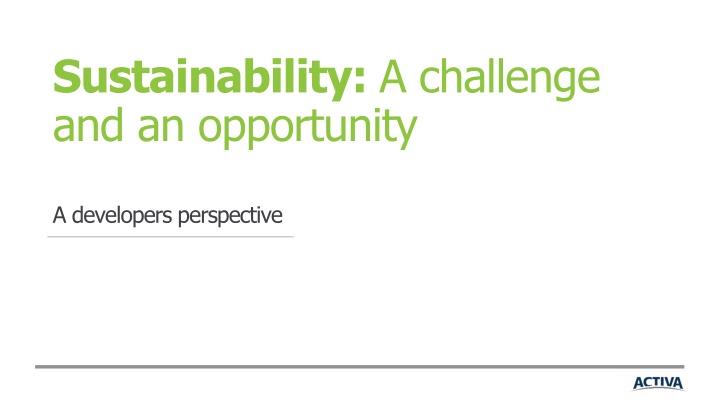
Sustainability: A Developer's Perspective - Challenges and Opportunities
This insightful perspective delves into the challenges and opportunities developers face in promoting sustainability. From creating safe workplaces to addressing affordability and sustainability, the narrative explores the complex dynamics at play in the development industry.
Uploaded on | 1 Views
Download Presentation

Please find below an Image/Link to download the presentation.
The content on the website is provided AS IS for your information and personal use only. It may not be sold, licensed, or shared on other websites without obtaining consent from the author. If you encounter any issues during the download, it is possible that the publisher has removed the file from their server.
You are allowed to download the files provided on this website for personal or commercial use, subject to the condition that they are used lawfully. All files are the property of their respective owners.
The content on the website is provided AS IS for your information and personal use only. It may not be sold, licensed, or shared on other websites without obtaining consent from the author.
E N D
Presentation Transcript
Sustainability: A challenge and an opportunity A developers perspective
Our Job Create a safe and rewarding workplace Build communities that are desirable and livable Be a net positive contributor to our community Provide positive financial returns for our ownership
How do we do our Job Create a safe and rewarding workplace this is generally something we can manage well, but rewarding is becoming more of a challenge Build communities that are desirable and livable we know how to do this but we do continually fight competing forces - what the market wants does not always equal what governing bodies want. In the end the market will win, its dictated by the voters, and they always have the last say in the long run. Every year the gap between wage growth and housing costs widens, so more and more people are priced out of the type of housing they desire from singles, to multis, to ownership vs rental Keep revenues higher than costs a varying challenge depending on market forces
Competing Forces Affordability Sustainability These work against each other Lack of consensus on how to solve both problems The risk of uncertainty
Starting point The Ontario building code
Our starting point An ENERGY STAR home is on average 20% more energy efficient than a home built to the local building code. It includes - Well Sealed Building Envelope + Blower Door Test to Confirm Air Tightness, HRV System, Triple Pane Windows, LED Lights, Tankless Water Heater, Advanced Wall System, High Efficiency Furnace, Extra Insulation 20%
Net Zero Ready and Net Zero Features AeroBarrier Air Sealing Dual Fuel Furnace & Air Source Heat Pump Under-Slab Insulation Drain Water Heat Recovery System Tankless Water Heater Energy Recovery Ventilation System (ERV) Extra Insulation in Walls & Ceilings, with Higher R-Value Triple Pane Windows Home Monitoring System Solar Panels
Costs, the bad news and the good (kind of) news A 36 single detached home Energy Star Add Net Zero Ready $20-25K Add Full Net Zero $40-45K From Energy Star to Full Net Zero will cost a consumer over $70K The good news is this incremental cost is now a much smaller portion of the overall cost of the home compared with 5 years ago, but
Our Plan All new buildings will need to be built to Net Zero energy ready standards by 2030. Activa is leading the way, building homes to this standard years ahead of plan Activa has committed to building all single detached homes to Net Zero Ready - a designation one step away from full Net Zero. Activa homeowners can upgrade their homes to full Net Zero with the addition of solar panels that provide sustainable energy back into the home. As a leader in the community, Activa is working on building approximately 130 new Net Zero Ready homes in the Waterloo Region this year alone, and another 150 in 2023! Activa is also pursuing sustainability on a much larger scale with the goal of full Net Zero, self powered, zero emission communities. This is in the research phase.
Net Zero Model Home
The Challenge Costs No help or incentives (buyer or builder) Hard choices for consumers Builders in good markets we can force this, in challenging markets (our current market as of last 30 days) this becomes a cost problem
The Opportunity By 2030 our industry has to do this, why wait for the future Create a differentiator Do the right thing Sustainability at the community/sub division/area level localized Net Zero https://west5.ca/
Heres an idea If driving the adoption of sustainable housing is important, then offer a DC exemption for Net Zero homes. A single detached home in Waterloo region has an average DC of $60K+. This exemption would allow a builder to absorb the Net Zero upgrade costs and not pass that cost on to the consumer. It could also be offered as a rebate directly to the home buyer. So I guess it really boils down to how important is sustainable development?
Partings words Please understand the math/economics of development and the risks that need to be taken with substantial capital


